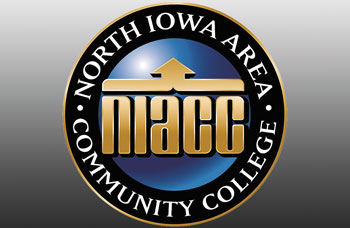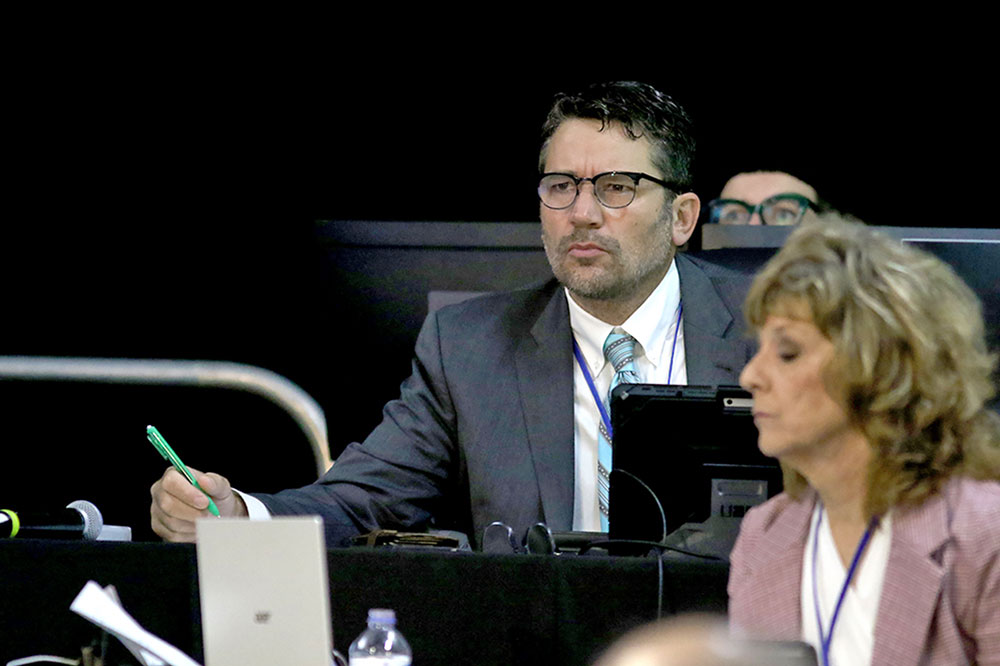Hospital execs make case for county support

By Bob Steenson, bsteenson@charlescitypress.com
Floyd County supervisors spent the afternoon at the hospital Monday.
In addition to a tour of some of the Floyd County Medical Center’s new equipment, the supervisors heard answers to a list of questions they had about the hospital’s request for $500,000 in county support in the next fiscal year.
Hospital Administrator Rod Nordeng went through the questions and the answers Monday afternoon. The list had been sent to the hospital by the supervisors after a discussion at a meeting last Tuesday regarding the hospital’s funding request and the county’s budget.
The group also talked briefly about the possibility of the hospital changing from a memorial hospital run by an appointed board of commissioners to a county hospital run by an elected board, that would have the power to levy it’s own property taxes to support operations.
If the supervisors approve the $500,000 for the hospital, it would be the biggest single new item in the county budget, and unless spending was slashed elsewhere would represent a significant increase in overall expenditures.
In December, as the supervisors were beginning their budget discussions for the fiscal year that will begin July 1, Nordeng and hospital Chief Financial Officer Ron Timpe had first made their case why the hospital needs $500,000 in county support, pointing out that the privatization of Iowa’s Medicaid system had devastated the hospital’s bottom line, and that Floyd County had the only county hospital in the state that did not receive county funding.
County Auditor Gloria Carr said Tuesday the county is restricted in how much it can collect by a state limit of $3.50 per $1,000 of taxable valuation on property in the county.
“Just throwing the numbers together for the Board of Supervisors, over a two-year period we spent down $2 million of fund balance in our general fund,” Carr said. “The $3.50 levy can’t cover all the requirements we have of our general fund.”
Nordeng went over in more detail some of the points they had made to the supervisors previously, including last year when a $100,000 funding request was turned down by the board.
Many of the questions dealt with the cash the hospital has on hand, including cash set aside for capital purchases such as new equipment, and the reasons the hospital was making decisions to offer particular services or how it was making other operational decisions.
Nordeng said as of Dec. 31, the hospital had only about $86,000 of operating cash on hand, which represents enough money to operate for 1.1 days.
“The average operating days of cash on hand for a critical access hospital range from 82 to 98 days,” he said in his written response to the supervisors.
He said the hospital has about $4.5 million in cash set aside for capital purchases, including new equipment and facilities maintenance, but if the hospital started using that for operating expenses it wouldn’t be able to keep up with new technology or facilities needs.
One of the major capital expenses on the horizon is about $6 million to $8 million for a new clinic building, he said.
Nordeng said a decision to add midwife services would require only 18 additional babies per year be delivered at the hospital to cover the cost of a nurse midwife, and that person would also increase revenues in the hospital’s clinic.
“The employment of a nurse midwife is fully supported by our physicians, commissioners, and has been received enthusiastically when shared with others in the public,” Nordeng’s written response to the questions said.
He said other changes, such as transitioning Meals on Wheels to another community group and closing the Nashua clinic, would save the hospital money, but those savings were already included in numbers the hospital had presented to the supervisors.
Nordeng said the biggest single factor in the hospital’s current financial challenge was the change from state-run to privatized Medicaid.
He said the change resulted in a $742,370 difference in the hospital’s Medicaid allowances between fiscal year 2016-17 and fiscal year 2017-18, even though the hospital’s total Medicaid charges decreased by less than 2 percent.
Like other hospitals in the state, Nordeng said, Floyd County Medical Center has taken “a hit” because the private companies that are administering the state’s Medicaid system are being allowed to write their own rules and decide how much health care providers should be paid.
“In a nutshell, the reduction in Medicaid reimbursement wiped out our bottom line,” he said, adding that health care costs are being transferred from the state to the local level and that doesn’t look to change.
Auditor Carr wondered if it was time “to get the ball rolling” to change from a county memorial hospital to one run by an elected board and able to determine its own property tax levy.
Nordeng had told the Press previously that that change would require approval through a county-wide vote.
Supervisor Roy Schwickerath said, “It isn’t like it’s not going to cost the taxpayers money, because it’s gonna cost them money, either way. But if we end up not being able to fund it because of our limitations on that levy, then the only solution in the future is somehow, someday (for the hospital) to be a taxing entity.”
The supervisors need to make budget decisions in the next couple of weeks to meet deadlines for publishing the proposed budget, holding a public hearing and passing the final version in time to be submitted to the state by the middle of March.








Social Share